Woodworking for the Blind
Woodworking for the Blind
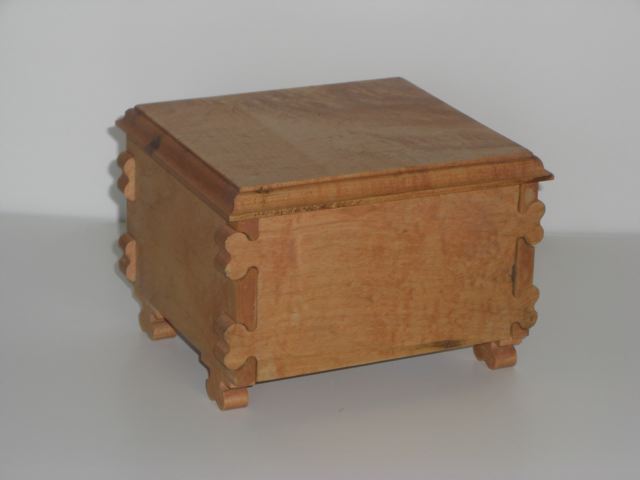
Small figured maple box. Corners are made with heart shaped dovetails.
This tea box is painted black with a Japanese fretwork design on the four corners of the front panel with the words "TEA" centered on the panel. The box is a cube about three and one-quarter inches square
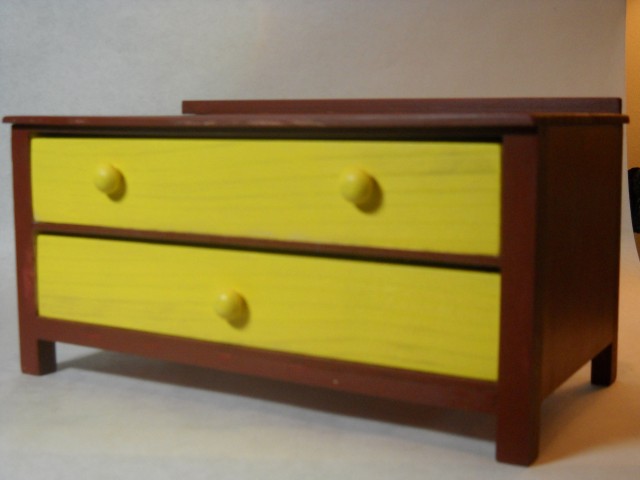
This two-drawer box is dyed or stained red-brown for the frame and lemon yellow for the drawers and knobs. The top drawer has two knobs and the bottom drawer has a single knob centered. The four leg posts raise the bottom of the box about an inch and a half above the table surface. It is made to look like a miniture chest of drawers
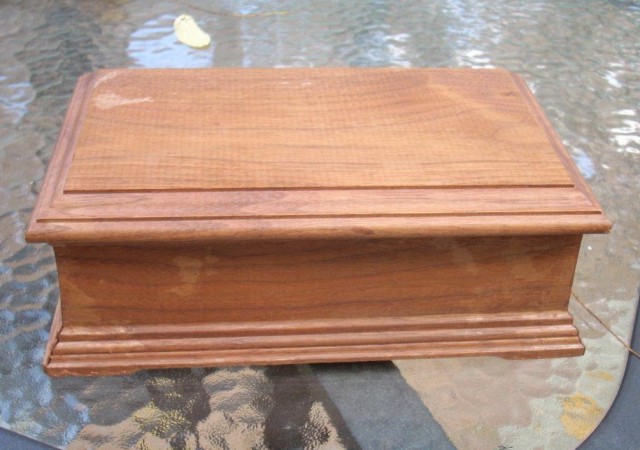
This music box has a hinged top that overhangs the sides and front. The top has a double molded edge and the bottom of the box has applied classical molding strips surrounding the box. The wood appears to be maple and is finished clear. Inside the box is lined with red felt and the music mechanism sits to one side of the interior.
This Jewelry box is made from some black walnut and tiger maple, The black walnut was salvaged from my grandmothers farm house, it burned down. (The house was built sometime in the late 1700 or early 1800 and was constructed entirely with black walnut, framing and siding.) The box has two lift out inserts.
This is a small keepsake box that is made from black walnut and maple
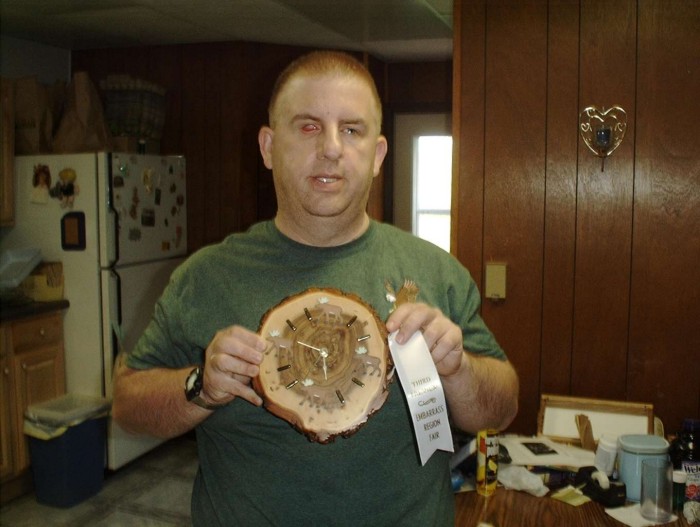
This clock is a round slice of a log about an inch and a half thick sanded smooth then drilled to put a quarts clock movement into it. There are little flat moose figures at twelve, three, six, and nine, and little straight lines for the other numbers.
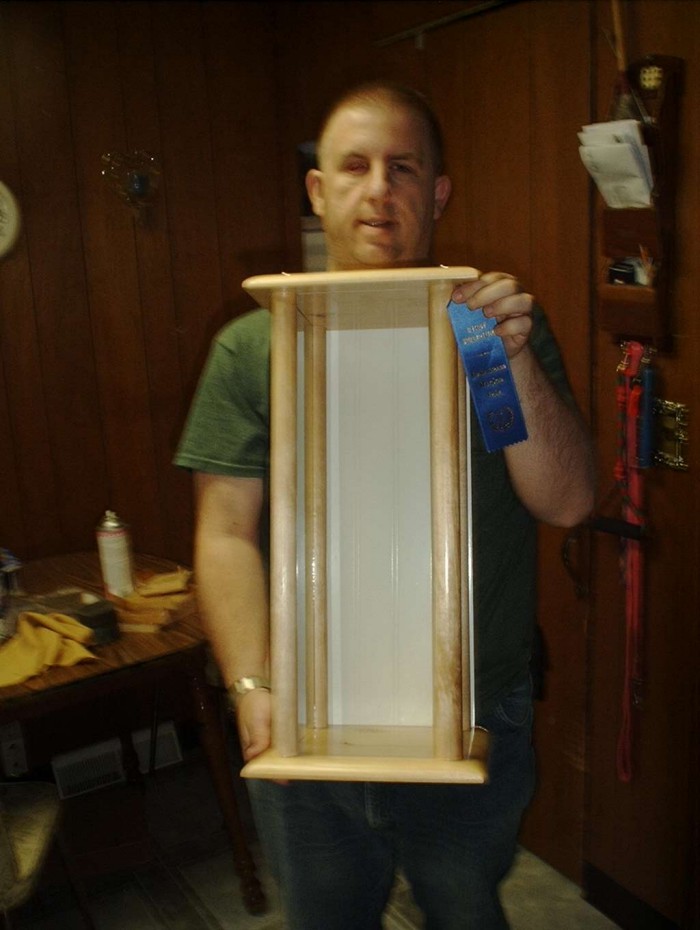
The top and bottom are made of solid pine that has been rounded over and then holes drilled to fit four dowel rods about 3/4 inches thick. There are slots for the Plexiglas window to slide down into.
this bench / step stool is both wider and taller than average. WW4B summer 2012 chalenge winner Entry: This project clicks in at 18 1/8 inches tall, 21 inches deep, 18 1/2 inches wide.
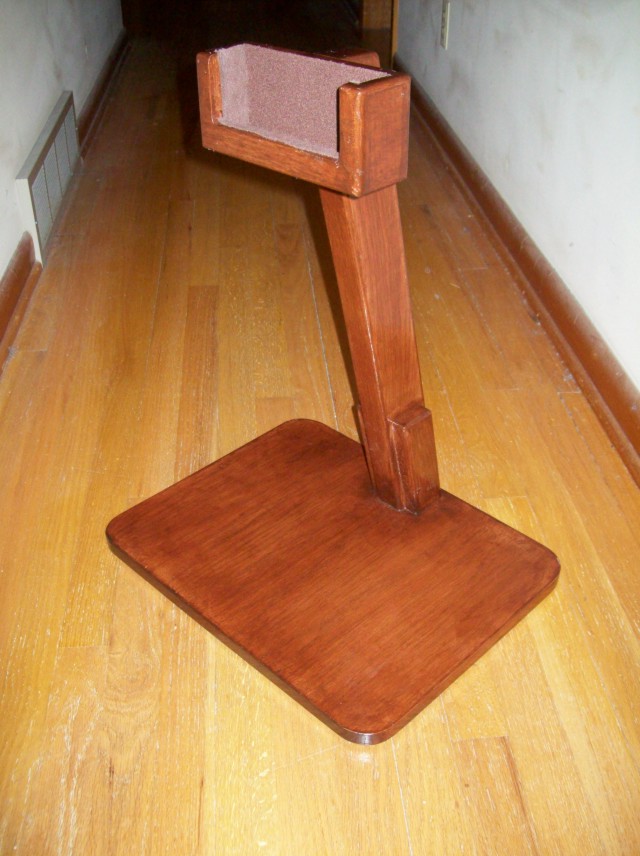
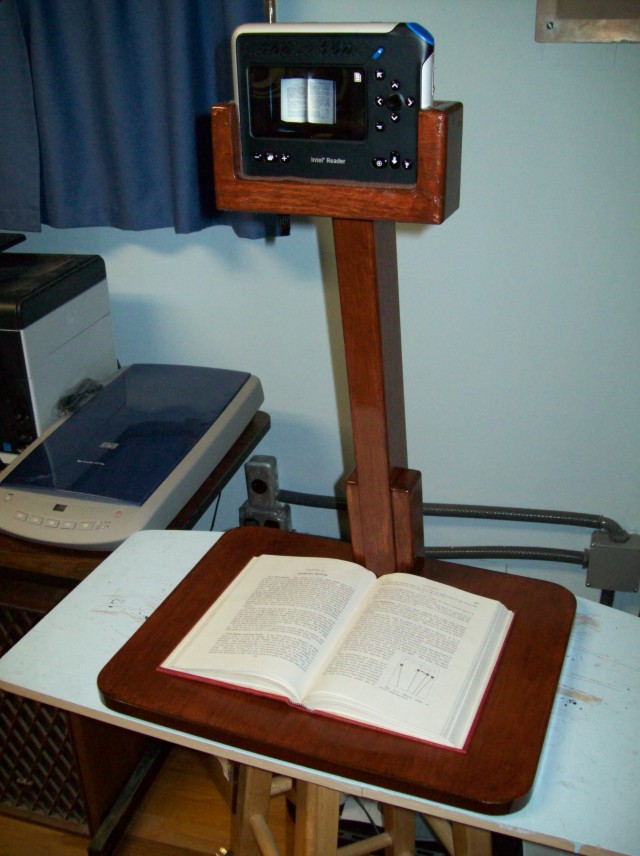
This is a stand for an Intel digital reader for blind and low vision persons. The base of the stand is a piece of oak faced 3/4 inch plywood 18 by 14 and a half inches. The corners have been rounded off with approximately a one and a half inch radius. The vertical piece that supports the camera holder is made of two pieces of 3/4 oak that were ripped down to 2 and 3/4 inches and glued together. The bottom was cut off at an angle of 14 degrees to place the camera holder over the center of the sheet. The other end of the vertical piece was cut at an angle of 76 degrees to give it a vertical face to which to fasten the camera holder. The vertical piece was fastened to the plywood sheet with pocket hole screws, two on each side. The screw holes were covered with two pieces of 3/4 inch oak that were ripped down to 2 inches wide. They are approximately 6 inches long. Both ends were cut at 14 degrees so the top edge of these decorative pieces are parallel to the base. The camera holder was made out of 1/2 inch oak which I had to buy. A groove was routed in the inside near the bottom of each piece to hold a 1/4 inch bottom piece. Much of this piece had to be drilled and chiseled away to allow the lens, laser, and flash, to see out of the bottom of the holder. There are also cooling vents, a USB plug for a thumb drive, a small USB for connection to a computer, and a place to plug in the charger. All edges, except the plywood, were eased using a round over bit in the router table. The plywood was edged with iron-on oak veneer. The wood in Ron's house is dark so I finished it with a varnish stain combination. Water born poly urethane and dark walnut stain.